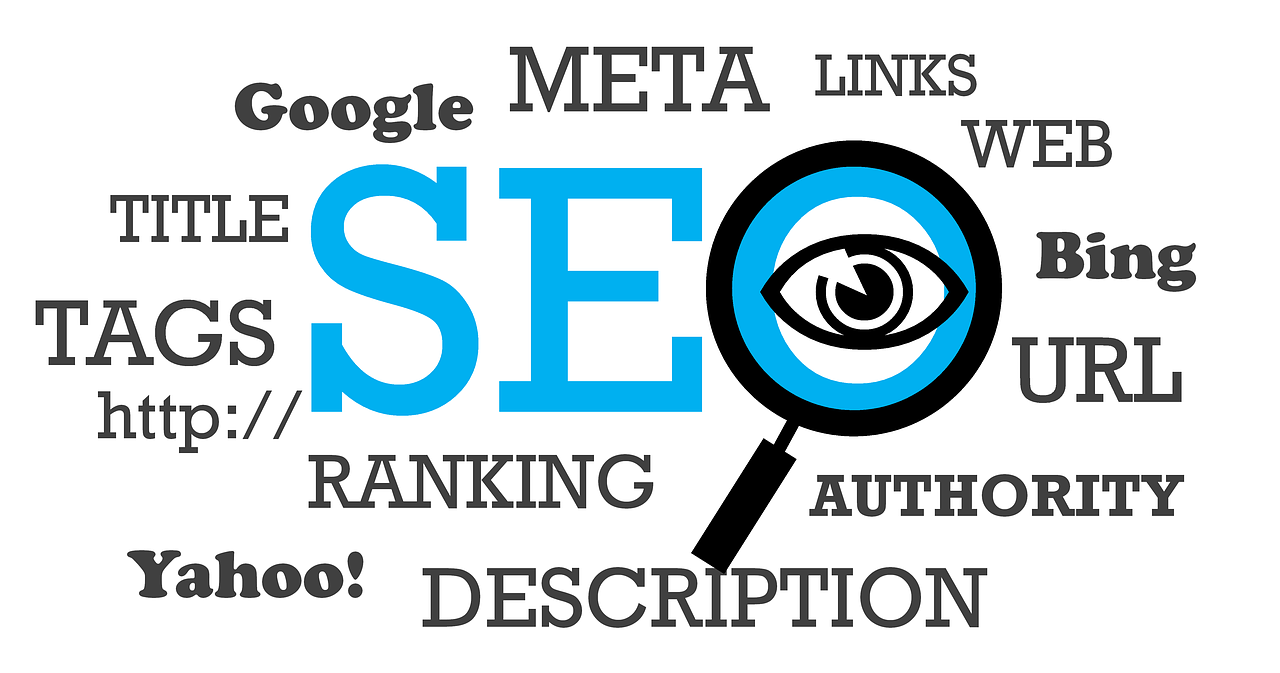Search engine optimization (SEO) plays a vital role in the online success of businesses today. It is the practice of improving a website’s visibility and ranking on search engine results pages (SERPs). In today’s digital age, where consumers heavily rely on search engines to find information, products, and services, having a strong SEO strategy is crucial for any business hoping to thrive online.
The concept of SEO revolves around understanding the algorithms and ranking factors that search engines use to determine the relevance and credibility of web pages. By optimizing various elements of a website such as its content, structure, and technical aspects, businesses can increase their chances of appearing higher on SERPs, resulting in improved organic traffic and higher conversion rates.
SEO is important for several reasons. First and foremost, it helps to increase organic visibility and drive more targeted traffic to a website. When a website is optimized for relevant keywords and key phrases, it becomes more likely to appear on the first few pages of search results, capturing the attention of users looking for specific products or services. This ultimately leads to increased brand exposure and more potential customers.
Furthermore, effective SEO can also enhance the user experience on a website. Search engines now prioritize user-friendly websites that provide valuable and relevant information. By optimizing the site’s speed, navigation, and overall functionality, businesses can attract and retain more visitors, encouraging them to explore the site further and potentially convert into customers.
In addition to improving visibility and user experience, SEO also helps build credibility and trust for a brand. When a website consistently ranks higher in search results, users tend to perceive it as a trustworthy and authoritative source. This credibility, in turn, can lead to more opportunities for partnerships, collaborations, and customer loyalty.
Overall, SEO is an indispensable aspect of every business’s online marketing strategy. It allows businesses to increase their online visibility, attract targeted traffic, improve user experience, and build credibility in the digital landscape. By investing time and effort into understanding and implementing effective SEO tactics, businesses can stay competitive and ensure long-term success in the increasingly competitive online marketplace.
Search engine algorithms (explaining how search engines determine website rankings)
Search engine algorithms play a pivotal role in determining the rankings of websites on search engine result pages (SERPs). These algorithms are complex sets of rules and calculations designed to evaluate the relevance and quality of the content on websites. Understanding how search engines determine website rankings is crucial for any business or website owner aiming to boost their online visibility and drive organic traffic.
Search engines use a variety of factors to determine how well a website matches a user’s search query. One of the key components of these algorithms is keyword relevance. Search engines analyze the content of web pages and evaluate how well it aligns with the keywords users are searching for. Websites that effectively incorporate relevant keywords in their content have a higher chance of ranking well in search results.
Another crucial aspect of search engine algorithms is the quality and authority of a website. Search engines consider factors such as backlinks, domain age, and overall website quality to determine how credible and trustworthy a site is. Websites with high-quality content and strong backlink profiles tend to receive higher rankings, as search engines view them as reliable resources for users.
User experience is also a significant factor in search engine algorithms. Search engines prioritize websites that offer a seamless and user-friendly experience. Factors such as page load speed, mobile responsiveness, and ease of navigation all contribute to a positive user experience. Websites that prioritize these elements are more likely to rank higher in search results.
Furthermore, search engines take into account the relevance and freshness of content when determining website rankings. Websites that consistently produce high-quality, up-to-date content are generally favored by search engines. Regularly updating and adding new content to a website not only keeps it relevant but also increases its chances of ranking higher in search results.
It is important to note that search engine algorithms are constantly evolving. Search engines like Google regularly update their algorithms to provide users with the most accurate and relevant search results. Staying up to date with these algorithm updates and adapting your SEO strategies accordingly is crucial for maintaining and improving your website’s rankings.
In conclusion, search engine algorithms are complex systems that evaluate various aspects of a website to determine its rankings on search engine result pages. By understanding the factors that influence these algorithms, businesses can optimize their websites to improve their visibility, drive organic traffic, and ultimately achieve greater online success.
Organic vs. paid search results (distinguishing between natural and paid listings)
In the world of search engine optimization (SEO), the battle for visibility in search engine results pages (SERPs) is primarily fought between organic and paid search results. When you type a query into a search engine like Google, the SERPs will display a combination of both natural (organic) listings and paid advertisements.
Organic search results refer to the listings that appear on the SERPs naturally, based on their relevancy to the user’s search query. These results are determined by complex algorithms that take into account various factors, such as the website’s content quality, relevance, user experience, and overall authority. Organic listings are earned through effective SEO tactics, including optimizing website content, using relevant keywords, and building high-quality backlinks.
On the other hand, paid search results are advertisements that businesses purchase to appear at the top or side of the SERPs. These listings are clearly marked as ads and are often labeled with phrases such as “Sponsored.” Businesses bid on specific keywords or phrases and pay when a user clicks on their ad, hence the term pay-per-click (PPC) advertising. Paid search results can provide a way for businesses to quickly gain visibility and drive targeted traffic to their websites.
Distinguishing between organic and paid search results is essential for understanding their respective roles in SEO. Organic listings are seen as more trustworthy and credible by users, as they are the result of the search engine deeming them highly relevant based on their algorithms. Users tend to click more frequently on organic results, as they perceive them to be more authentic and impartial.
Paid search results, while clearly marked as advertisements, can still be an effective strategy for businesses looking to enhance their online visibility. These ads appear above organic results or in prominent positions on the SERPs, attracting immediate attention from users. Paid search campaigns allow businesses to target specific keywords, demographics, and locations, allowing for more precise targeting and potentially higher conversion rates.
While both organic and paid search results have their merits, it’s important for businesses to strike a balance between the two in their SEO strategies. Organic SEO efforts, such as optimizing website content and earning backlinks, contribute to long-term success and brand building. Paid search advertising can complement these efforts by providing immediate visibility and driving targeted traffic, especially for new or time-sensitive promotions.
Ultimately, the key is to understand your business objectives, target audience, and budget, and then develop an effective SEO strategy that leverages the strengths of both organic and paid search results. By integrating these tactics, businesses can enhance their online presence, improve their rankings in SERPs, and increase the chances of attracting and retaining valuable customers.
Keyword research (describing the process of finding relevant keywords for SEO)
Keyword Research:
Keywords are the foundation of any successful SEO strategy. They are the words and phrases that people use when searching for information online. Therefore, conducting thorough keyword research is crucial in order to identify the most relevant and valuable keywords for your website.
The first step in keyword research is to brainstorm a list of potential keywords that are related to your business, products, or services. Think about the words your target audience would use to find what you offer. It can be beneficial to put yourself in the shoes of your customers and imagine what they would type into a search engine.
Once you have a list of initial keywords, it’s time to refine and expand it. Use keyword research tools, such as Google Keyword Planner or SEMrush, to find additional keyword ideas and gather important data, such as search volume and competition level. These tools will help you understand which keywords are popular and how difficult it may be to rank for them.
As you compile your keyword list, make sure to prioritize relevance. Focus on keywords that accurately reflect your business and align with your target audience’s search intent. Simply targeting high-volume keywords without relevance can lead to poor quality traffic and ultimately harm your SEO efforts.
Another crucial aspect of keyword research is understanding keyword intent. This involves analyzing the user’s intention behind their search query. Are they looking for information, wanting to make a purchase, or seeking a specific solution? By understanding the intent, you can tailor your content and optimization efforts to match what the user is looking for.
Once you have a comprehensive list of relevant keywords that align with your business and target audience, it’s time to strategically incorporate them into your website. This can be done through optimizing your page titles, meta descriptions, headings, content, and URLs. By strategically using keywords throughout your website, you improve your chances of ranking higher in search engine results pages (SERPs) and attracting organic traffic.
In conclusion, keyword research forms the backbone of any successful SEO strategy. By conducting thorough research, identifying relevant keywords, and optimizing your website accordingly, you can increase your visibility in search engines and ultimately drive more organic traffic to your business. Remember, SEO is an ongoing process, so regular keyword research will help you stay ahead of the competition and adapt to changing search trends.
On-page optimization plays a crucial role in enhancing a website’s visibility and ranking in search engine results. It involves optimizing various aspects of the website content and meta tags to ensure they align with the targeted keywords. This helps search engines understand the relevance of the website and its pages, making it easier for them to rank it higher for relevant search queries.
One of the fundamental elements of on-page optimization is optimizing website content. This involves creating high-quality, informative, and engaging content that not only appeals to the target audience but also includes relevant keywords naturally. By incorporating keywords strategically within the content, search engines can easily recognize the relevance of the website to specific search queries.
Optimizing meta tags, such as the title tag and meta description, is equally important. The title tag appears as the clickable headline in search engine results, and the meta description provides a brief overview of the content that follows. By ensuring these tags accurately represent the content and include targeted keywords, website owners can improve their click-through rates and attract more organic traffic.
Furthermore, on-page optimization includes optimizing URL structures, alt tags for images, internal linking, and ensuring fast-loading web pages. These factors contribute to the overall user experience and help search engines navigate and understand the website better.
Overall, on-page optimization is integral for businesses aiming to improve their search engine visibility and organic traffic. By optimizing website content and meta tags, businesses can enhance their website’s relevance, increase its chances of ranking higher in search results, and ultimately achieve their online marketing goals.
Off-page optimization (explaining how external factors impact SEO, such as backlinks)
Off-page optimization, an essential aspect of SEO, involves optimizing external factors that can impact your website’s ranking on search engine result pages. One of the most significant elements of off-page optimization is building high-quality backlinks to your website.
Backlinks, also known as inbound links, are links from other websites that direct users to your website. Search engines consider backlinks as a vote of confidence or authority for your website, indicating its relevance and credibility. The more quality backlinks you have, the higher your website’s chances of ranking well in search engine results.
When it comes to backlinks, quality is more important than quantity. It is crucial to focus on acquiring backlinks from reputable websites that are relevant to your industry or niche. For example, if your business is in the technology sector, getting a backlink from a well-known tech blog or website can significantly boost your SEO efforts.
However, not all backlinks are created equal, and search engines closely evaluate the quality of each link. They consider various factors such as the authority of the linking website, the relevance of the content surrounding the link, and the anchor text used for the link. A backlink from a highly authoritative website with relevant content and an anchor text related to your target keywords will carry more weight in terms of SEO.
While building backlinks is essential, it’s crucial to obtain them naturally, rather than resorting to black-hat practices like buying links or engaging in link farms. Search engines are becoming increasingly sophisticated in detecting such manipulative tactics, and they can penalize your website for engaging in such practices.
Additionally, off-page optimization involves other external factors that impact SEO, such as social media signals. The engagement and shares your website receives on platforms like Facebook, Twitter, or LinkedIn can indirectly influence your SEO efforts. When your content gets shared and generates buzz on social media, it can lead to more visibility and potentially attract natural backlinks.
In conclusion, off-page optimization plays a vital role in SEO by considering external factors such as backlinks and social media signals. Building high-quality backlinks from reputable websites within your industry can significantly boost your website’s credibility and authority, leading to improved search engine rankings. Remember to focus on acquiring natural backlinks and engaging in genuine social media engagement to optimize your off-page SEO efforts.
Local SEO (discussing strategies to optimize for local searches and attract nearby customers)
Local SEO plays a crucial role in today’s digital landscape, especially for businesses looking to attract customers in their local vicinity. With the increasing popularity of mobile devices and location-based searches, optimizing your website for local searches has become more important than ever before.
One effective strategy to optimize for local searches is to ensure that your business information is consistent and up-to-date across all online platforms. This includes your website, social media profiles, online directories, and review sites. Providing accurate details such as your business name, address, phone number, and website URL helps search engines understand your location and increases your chances of being displayed to relevant local searches.
Another important aspect of local SEO is to create and optimize your Google My Business listing. This free tool allows you to manage your business information and appearance on Google Search and Maps. By claiming and optimizing your listing, you can provide potential customers with valuable information about your business, including your operating hours, reviews, and photos. This not only enhances your online presence but also helps you rank higher in local search results.
To further improve your local SEO efforts, encouraging online reviews from satisfied customers can significantly impact your search visibility. Positive reviews not only provide social proof but also help search engines determine the credibility and relevance of your business. Engage with your customers, respond to their reviews, and ensure your business is providing a positive customer experience to generate more positive feedback.
In addition to these strategies, creating location-specific landing pages on your website can also boost your local SEO. These pages can focus on targeted keywords and provide valuable information about your products or services to customers in specific geographic areas. By tailoring your content to relevant local search terms, you increase the likelihood of showing up in local search results.
It’s essential to regularly monitor and analyze your local SEO efforts to identify areas of improvement. Utilize tools like Google Analytics and Google Search Console to track your website’s performance and gain insights into your local search visibility. Pay attention to key metrics such as organic traffic, bounce rates, and conversion rates to assess the effectiveness of your local SEO strategies.
By implementing these local SEO strategies, you can increase your online visibility, drive more local traffic to your website, and ultimately attract nearby customers. Remember, the key to successful local SEO is to consistently update and optimize your business information, engage with your audience, and stay active in local online communities.
Mobile optimization (emphasizing the increasing significance of mobile-friendly websites)
As the digital landscape continues to evolve, so does the way we consume online content. With the increasing use of smartphones and tablets, it has become crucial for businesses to optimize their websites for mobile devices. Mobile optimization, also known as mobile SEO, is the process of ensuring that a website is fully functional and user-friendly on mobile devices.
Why is mobile optimization important? Well, it goes beyond just providing a seamless user experience. Search engines, like Google, have acknowledged the growing importance of mobile-friendly websites and now prioritize them in their search results. This means that if your website is not optimized for mobile, it could be pushed down in search rankings, resulting in reduced visibility and fewer opportunities for organic traffic.
Additionally, studies have shown that the majority of internet users now prefer to browse the web on their mobile devices. Whether it’s looking up information, making online purchases, or simply browsing social media, these activities are predominantly happening on mobile. If your website is not optimized for mobile, chances are you are losing potential customers or clients who may become frustrated with a website that doesn’t function properly or is difficult to navigate on their devices.
Mobile optimization involves various strategies and techniques, such as responsive web design, mobile-friendly layouts, and fast page loading speeds. Ensuring that your website adjusts seamlessly to different screen sizes and orientations is essential to providing a positive user experience. In addition, optimizing images and minimizing code can significantly improve page loading times, reducing bounce rates and increasing the chances of conversion.
In conclusion, mobile optimization is no longer just a nice-to-have feature for websites – it is now an essential element of any successful SEO strategy. By ensuring that your website is mobile-friendly, you can improve your search engine rankings, increase organic traffic, and provide a user experience that keeps visitors engaged and satisfied. Don’t overlook the power of mobile optimization – it could be the key to unlocking your business’s online success.
User experience and site speed (exploring how website usability and loading time affect SEO)
User experience and site speed play crucial roles in optimizing a website for search engines. Not only do they directly impact the overall user satisfaction, but they also affect the site’s search engine rankings.
When it comes to user experience, search engines like Google prioritize websites that provide a positive and seamless experience for visitors. A well-designed and user-friendly website not only enhances the overall user satisfaction but also encourages engagement, increases conversion rates, and reduces bounce rates.
Navigation is a key aspect of user experience. When visitors can easily navigate through different pages, find relevant information, and understand the site structure, they are more likely to stay longer and explore further. In turn, search engines interpret this behavior as a positive signal for the website’s quality and relevancy, thereby boosting its rankings.
Additionally, website loading time is an essential factor affecting user experience and search engine optimization. In today’s fast-paced digital era, users expect websites to load quickly. If a site takes too long to load, visitors are likely to abandon it and move on to a competing website.
Search engines understand the importance of this and prioritize websites that offer faster loading times. This means that a slow-loading website can have a negative impact on its search engine rankings. To improve site speed, various optimization techniques should be employed, such as optimizing images, minifying CSS and JavaScript files, and leveraging browser caching.
A website’s mobile-friendliness is also a critical aspect of user experience and SEO. With the increasing usage of mobile devices, search engines prioritize mobile-friendly websites in their search results. A mobile-responsive website adapts to different screen sizes and provides a seamless browsing experience across devices. This not only helps retain visitors but also signals to search engines that the website is user-oriented and relevant.
In summary, user experience and site speed are vital components in search engine optimization. By focusing on providing a seamless user experience, improving site navigation, and optimizing loading times, websites can enhance their rankings and attract more organic traffic. Prioritizing these factors not only benefits SEO but also contributes to increased engagement, conversions, and overall business success.









